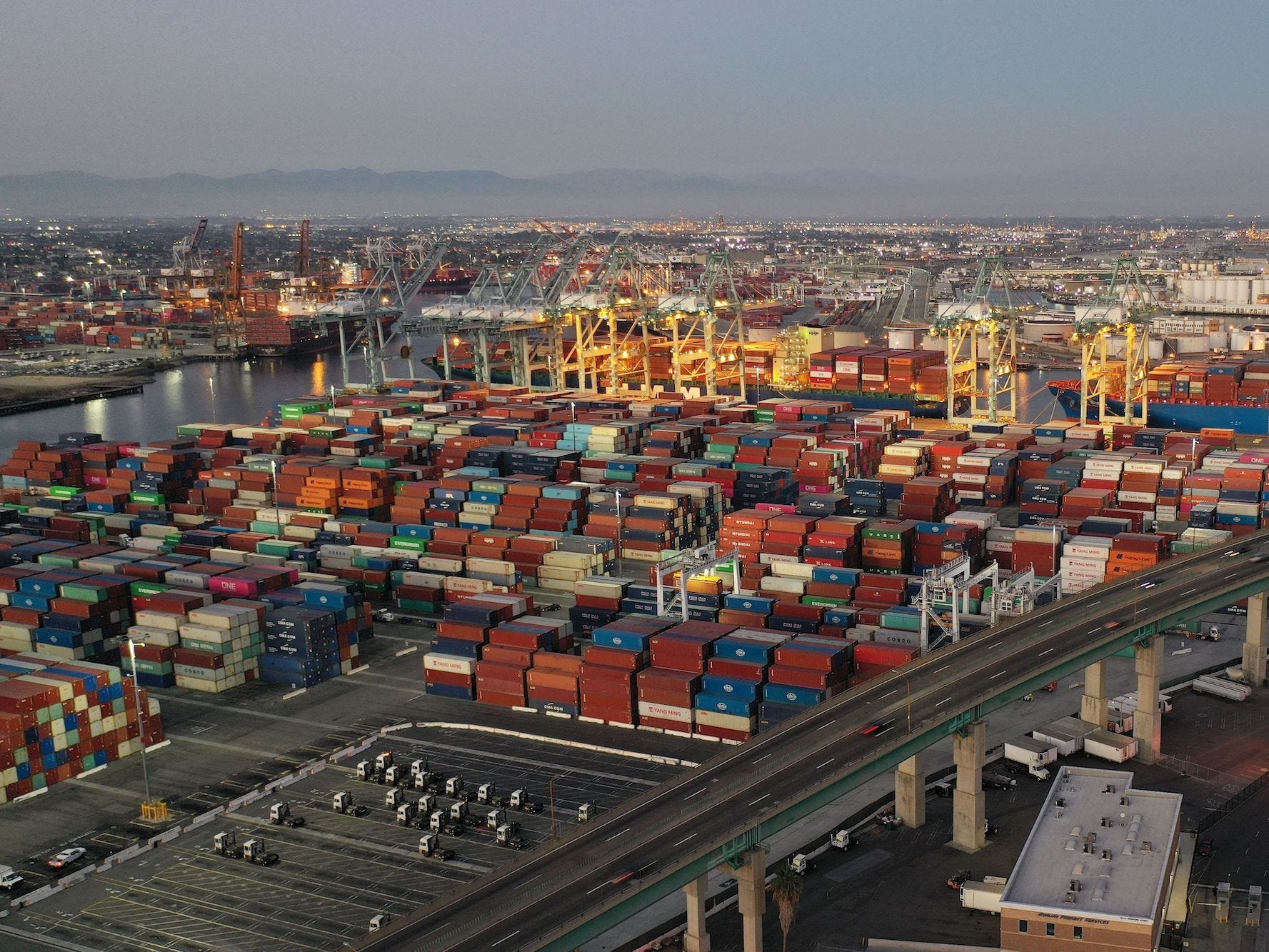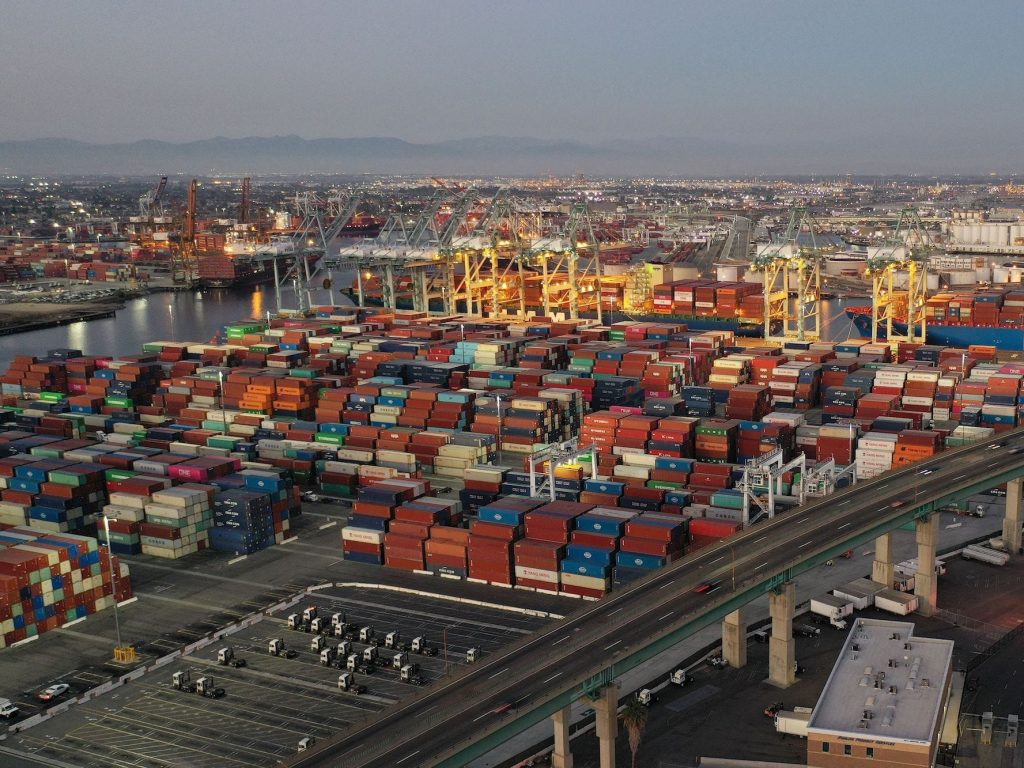
ROBYN BECK/AFP via Getty Images
- The largest ports in the US hit a new record on Monday as 100 ships wait to dock and unload.
- The ports have smashed through multiple records this year as COVID-19 shutdowns meet a boom in consumer demand.
- Last week, President Biden announced the ports would start processing ships 24/7.
California ports have hit another record, despite Biden's plan to extends their working hours in order to ease the backlog.
According to data from the Marine Exchange, there were a total of 157 ships recorded in and around the ports of Los Angeles and Long Beach on Monday, matching a record that was reached for the first time in September. The total number of ships at anchor and in holding areas, waiting to dock and unload at the ports, also hit a fresh record on Monday as 100 vessels floated off the shore.
97 of these ships are container ships, bobbing around at sea outside these ports, and carrying cargo that will likely miss holiday shopping season. Due to the backlog, the cargo ships often wait multiple weeks before they are unloaded, adding time to a transportation turnaround for goods coming from Asia that is about 75 days on average from their origin to final destination, according to data from Freightos. To date, several container ships have been waiting at anchor since the beginning of September, according to data from the Marine Exchange of Southern California.
Before the pandemic, the ports' highest record had been 17 ships waiting to anchor, Kip Louttit, the head of the Marine Exchange told Insider in an emailed note.
In an interview with CNN on Monday, Gene Seroka, head of the Port of Los Angeles, said that Biden's 24/7 plan was helping it to move through some of the cargo that had been sitting on the dock for several days. The White House announced Wednesday that the Port of LA would follow in the footsteps of its Long Beach neighbor and run some terminals 24/7.
"We had 25% of all cargo on our dock sitting here for 13 days or longer [and] that's been cut in just about half over the last week," Seroka told CNN.
Still, he's not expecting supply-chain issues to start to improve until February 2022 as consumer demand continues to soar. Seroka said that the port will most likely need to run 24/7 service until next summer.
Logistics experts have been skeptical about whether Biden's all-night schedule would have a real impact.
"It's great that they've chosen to do something, but we're talking about a less than 1% to 2% change here," Gartner supply chain analyst Brian Whitlock previously told Insider. "The work that they're talking about here is going to be immaterial. It probably won't even be visible."
This is partly because Biden's plan doesn't address the trucker and warehouse worker shortages, they say. Plus, if these workers aren't also extending their hours, there's nowhere for the cargo to go.
"Right now we're just shifting the problem further down the line," former US trade negotiator Harry Broadmen told Insider. "So much focus has been placed on fixing the issues at the ports when it's only one portion of the equation. The entire supply chain needs to be synchronized."
Before the Port of Los Angeles launched 24/7 operations, Seroka said that everyone in the supply-chain network needs to be "on the same page" to fix this crisis - a near impossible feat. Not only do the shipping terminals themselves require coordinated efforts as they are run by private companies, but the movement of goods must also be synced with importers, truckers, and warehousing companies, which represent industries that are fractured into a wide variety of small to mid-sized companies.
